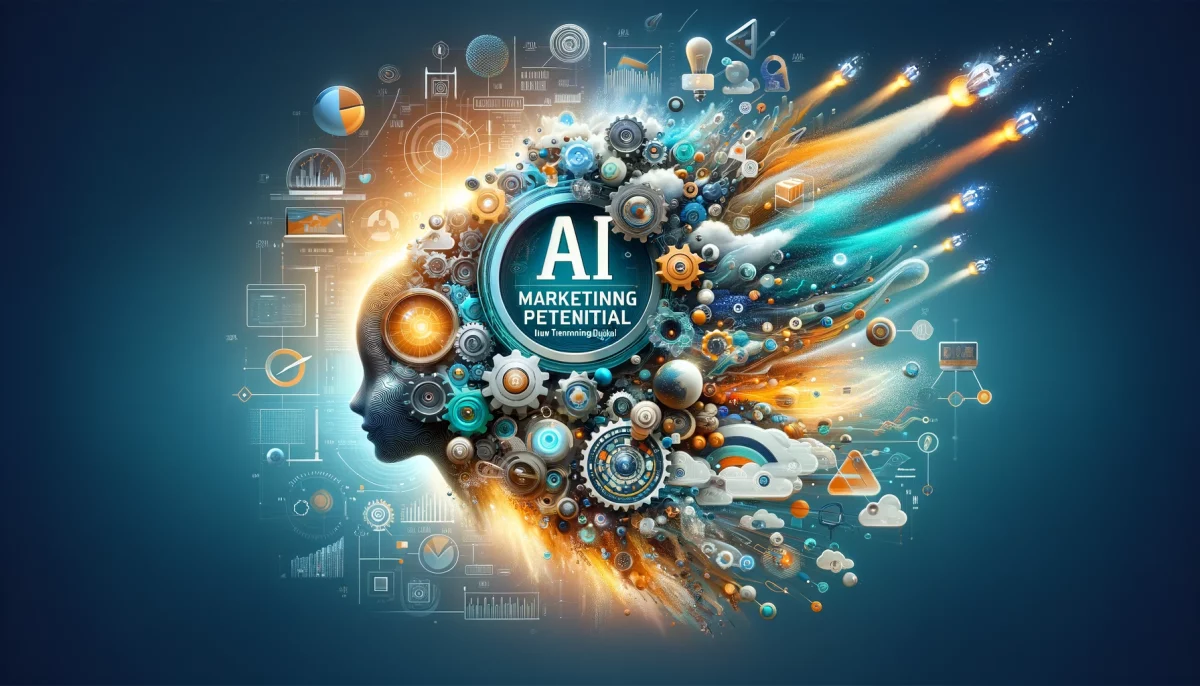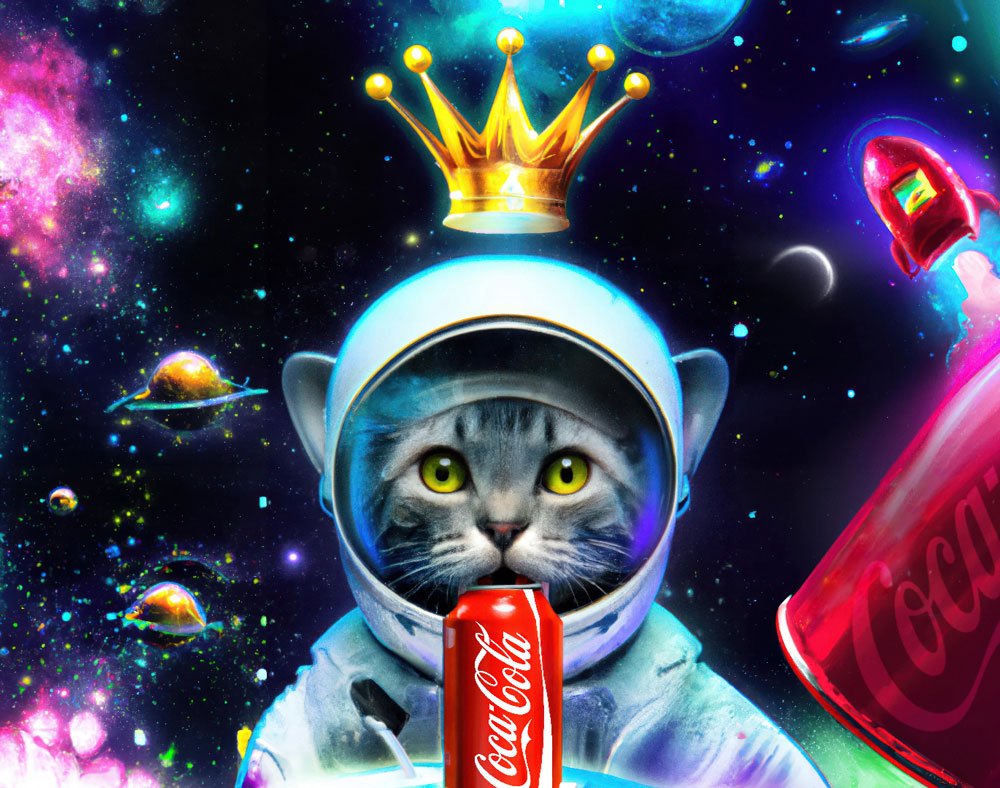
Generative AI, a cutting-edge technology, autonomously creates content across mediums like text, images, and videos. In today’s digital realm, marketing must span various marketing channels—social media, email, websites, and traditional ads—to engage diverse audiences effectively. This paper delves into how generative AI can transform marketing strategies across these channels. By exploring AI’s potential to generate, personalise, and optimise content at scale, we aim to uncover its profound impact on audience engagement, brand consistency, and campaign effectiveness. Through this exploration, we offer insights and guidance for businesses seeking to harness generative AI’s power in their marketing endeavours. This technology promises to drive innovation and growth in the fiercely competitive digital landscape, reshaping how brands connect with consumers across the ever-evolving array of marketing platforms.
Understanding Generative AI:
Definition and Basic Principles
Generative AI, an advanced technology, operates autonomously, producing content based on predefined parameters and training data. It functions on fundamental principles of machine learning, where algorithms learn patterns and structures from datasets to create novel outputs.
Examples Across Industries
Generative AI showcases its versatility and innovation across various sectors. In art, it generates unique paintings, music compositions, and poetry. Healthcare benefits from medical image synthesis and drug discovery.
Potential Benefits for Marketing Strategies
Generative AI holds significant promise for marketing efforts. It automates the creation of diverse content formats, tailored to specific audience segments, enhancing personalization and engagement. Moreover, it facilitates continuous optimization through data-driven insights, improving campaign effectiveness and ROI.
Current Challenges in Marketing Across Channels:
Fragmentation of Audience
Marketing faces the challenge of fragmented audiences across numerous platforms, each with its own user base and demographics. This fragmentation complicates targeting and requires tailored strategies for each platform to effectively reach the desired audience segments.
Inconsistencies in Messaging and Branding
Maintaining consistent messaging and branding across multiple channels can be challenging. Divergent messaging may confuse audiences and dilute brand identity. Ensuring coherence across platforms requires careful planning and coordination to convey a unified brand image and message.
Difficulty in Personalizing Content
Personalizing content at scale presents a significant hurdle for marketers. With vast amounts of data and diverse audience preferences, creating personalized experiences for each individual can be daunting. Marketers must invest in advanced technologies and strategies to segment audiences effectively and deliver personalized content that resonates with each segment, including postings on social media.
Addressing these challenges requires innovative approaches and technologies. Marketers can leverage data analytics, AI-driven personalization tools, and cohesive branding strategies to navigate the complexities of multi-channel marketing effectively. By understanding and overcoming these obstacles, businesses can enhance their marketing efforts and better connect with their target audiences across various channels.
Transformative Potential of Generative AI:
Content Creation and Personalization:
Generative AI offers unparalleled potential in content creation and personalization.
Automated Generation of Diverse Content Formats:
- Generative AI algorithms can autonomously produce a wide array of content formats, including text, images, and videos. This capability streamlines the content creation process, allowing marketers to efficiently generate compelling assets tailored to specific marketing objectives and audience preferences. By leveraging generative AI, businesses can overcome traditional limitations in content creation scalability and diversity.
Tailoring Content to Specific Audience Segments in Real-Time:
- Generative AI enables real-time content personalization at scale. By analyzing vast datasets and user interactions, AI algorithms can dynamically adapt content to individual audience preferences and behaviors. This level of personalization enhances engagement and relevance, driving stronger connections between brands and consumers. Moreover, real-time personalization allows marketers to respond swiftly to changing market trends and consumer sentiments, ensuring that content remains timely and impactful.
Optimization and A/B Testing:
Generative AI facilitates data-driven optimization and A/B testing, empowering marketers to refine their strategies for maximum effectiveness.
Automated Experimentation to Refine Marketing Strategies:
- Generative AI algorithms can conduct automated experimentation and optimization across marketing campaigns. By systematically testing different variables and strategies, AI-driven systems identify optimal approaches for achieving campaign objectives, such as maximising conversion rates or ROI. This iterative process accelerates campaign refinement and optimization, leading to improved performance and efficiency.
Continuous Learning and Adaptation Based on Performance Data:
- Generative AI systems continuously learn and adapt based on performance data feedback. By analysing campaign metrics and user interactions in real-time, AI algorithms identify patterns and trends, allowing marketers to make data-driven decisions and adjustments on the fly. This adaptive approach ensures that marketing strategies remain responsive to evolving market dynamics and consumer preferences, driving sustained success and competitive advantage.
Cross-Channel Integration:
Generative AI facilitates seamless coordination and integration of messaging across diverse marketing channels.
Seamless Coordination of Messaging Across Platforms:
- Generative AI enables marketers to maintain consistent messaging and branding across multiple channels. By centralizing content generation and distribution processes, AI-driven systems ensure coherence and alignment in messaging strategies, regardless of the platform or channel. This unified approach enhances brand visibility and recognition, fostering stronger brand-consumer relationships and loyalty.
Maintaining Brand Consistency While Adapting to Channel-Specific Dynamics:
- Generative AI allows marketers to adapt messaging and content to channel-specific dynamics while preserving brand consistency. By leveraging AI-generated insights and analytics, marketers can tailor content strategies to resonate with the unique characteristics and preferences of each platform’s audience, optimising engagement and impact. This ensures that your content remains relevant and likely to resonate with your followers. This balance between brand consistency and channel relevance maximises the effectiveness of marketing efforts across diverse channels, driving holistic brand growth and success.
Case Studies and Examples:
Success stories of brands leveraging generative AI in marketing campaigns abound. For instance, Coca-Cola utilised generative AI to create personalised ad campaigns tailored to individual consumers’ preferences, leading to a significant increase in engagement and sales.
Comparative studies have shown that AI-driven marketing strategies outperform traditional approaches in terms of efficiency and effectiveness. For example, a study by McKinsey found that companies using AI in marketing experienced a 25% increase in revenue compared to those that did not. Through these case studies, businesses have learned valuable lessons about the implementation of generative AI in marketing. Key best practices include investing in robust AI infrastructure, leveraging data analytics for insights, and maintaining a balance between automation and human creativity in content creation and optimization strategies.
Future Outlook:
Emerging trends and advancements in generative AI technology are poised to revolutionise marketing. As AI algorithms continue to evolve, we can expect enhanced capabilities in content creation, personalization, and optimization. Predictions for the future of marketing across channels suggest a greater integration of AI-driven solutions into marketing strategies. Marketers will increasingly rely on AI-powered tools for data analysis, audience segmentation, and campaign optimization to stay competitive in the ever-changing digital landscape. Opportunities for innovation and growth in the AI-powered marketing landscape are abundant. Businesses that embrace AI technologies stand to gain a competitive edge by delivering more relevant, personalised experiences to their audiences, driving engagement, loyalty, and revenue growth.
Conclusion:
Throughout our discussion, it’s evident that generative AI has the potential to transform marketing by enhancing content creation, optimization, and channel integration. Businesses are encouraged to embrace AI-driven strategies to stay competitive, drive engagement, and unlock new opportunities for growth.





